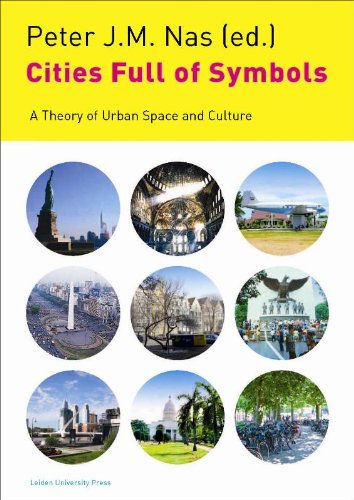
Cities Full of Symbols: A Theory of Urban Space and Culture
by Peter J. M. Nas (ed.)
Publisher: Leiden University Press 2011
ISBN/ASIN: 9087281250
ISBN-13: 9789087281250
Number of pages: 304
Description:
Cities Full of Symbols develops urban symbolic ecology and hypercity approaches into a new perspective on social cohesion. Approaches of architects, anthropologists, sociologists, social geographers and historians converge to make this a book for anyone interested in urban life, policymaking and city branding.
Download or read it online for free here:
Download link
(7.5MB, PDF)
Similar books
 A History of Architecture on the Comparative Method
A History of Architecture on the Comparative Methodby Banister Fletcher - Batsford
Architecture has been described very truly as the printing press of all ages. This book is an excellent and essential reference and a treasure trove of architectural history for architects or anyone interested in architecture through the ages.
(19252 views)
 Vitruvius: The Ten Books on Architecture
Vitruvius: The Ten Books on Architectureby Marcus Vitruvius Pollio - Harvard University Press
The only full treatise on architecture to survive from classical antiquity, this is the most important work of architectural history in the Western world, having shaped architecture and the image of the architect from the Renaissance to the present.
(21861 views)
 The Architecture of Colonial America
The Architecture of Colonial Americaby Harold Donaldson Eberlein - Little, Brown and Co.
It is the purpose of this volume to set forth a brief history and an analysis of the architecture of Colonial America, in such wise that they may be of interest and value both to the general reader and to the architect. Published in 1915.
(5483 views)
 Designing Paris: The Architecture of Duban, Labrouste, Duc, and Vaudoyer
Designing Paris: The Architecture of Duban, Labrouste, Duc, and Vaudoyerby David Van Zanten - The MIT Press
The book explores the revolution in French architecture that began around 1830 under the leadership of Felix Duban, Henri Labrouste, Louis Duc, and Leon Vaudoyer. It shows how these four architects dominated their profession during the Monarchy...
(3764 views)